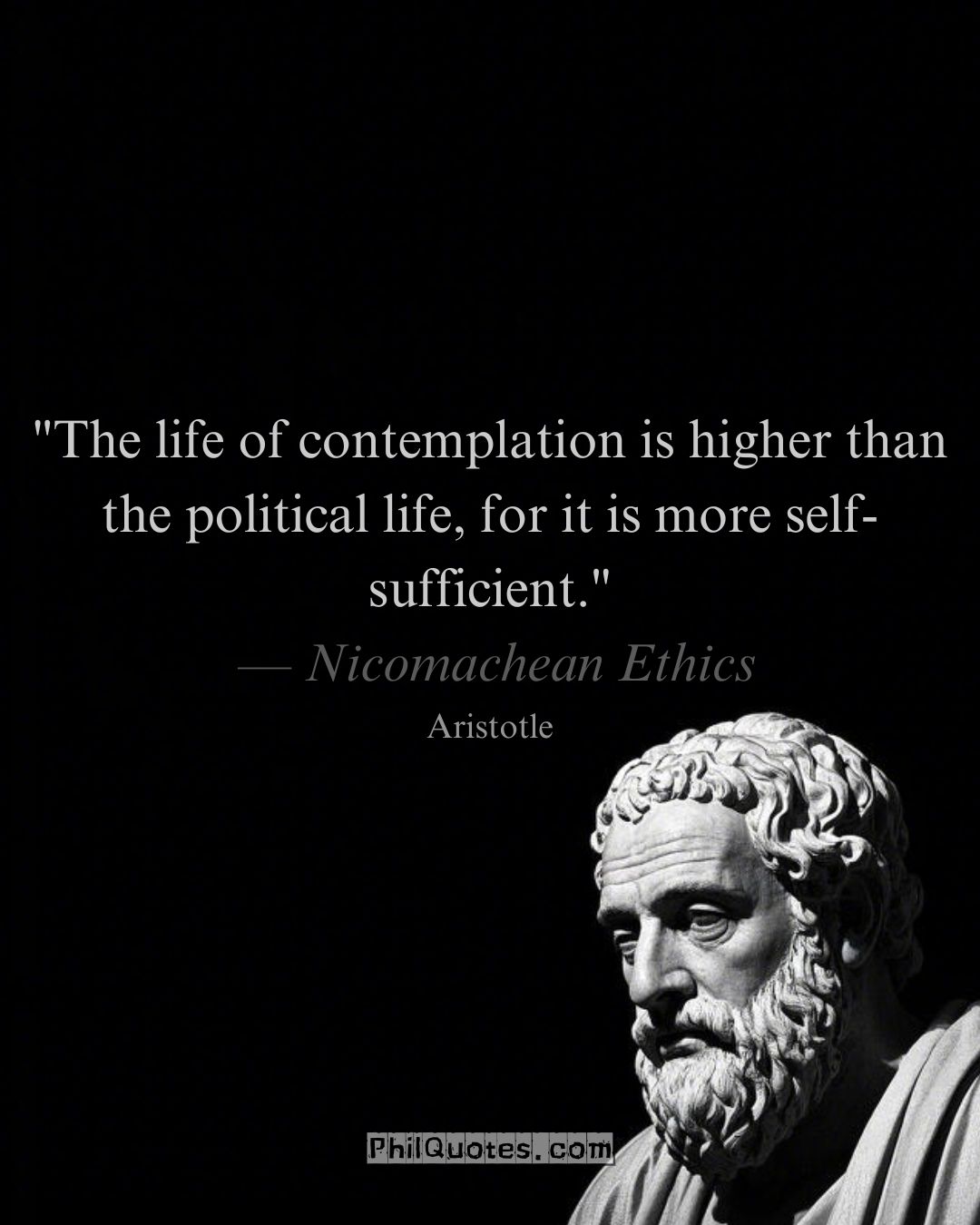
“The life of contemplation is higher than the political life, for it is more self-sufficient.”
— Aristotle, Nicomachean Ethics, Book I, Chapter 5
Explanation:
Aristotle ranks contemplation (θεωρία/theoria) as humanity’s highest pursuit because:
- Self-Sufficiency: Unlike politics needing crowds and power, contemplation thrives in solitude with only truth as fuel.
- Intrinsic Value: Philosophers seek wisdom for its own splendor, while politicians often chase approval or legacy.
- Divine Proximity: Contemplating eternal truths mirrors the gods’ activity — making it the most godlike human endeavor.
Real-World Connection:
① Modern Philosopher’s Choice →
A tenured professor declines cabinet position → continues researching cosmic ethics (contemplative focus) → publishes theory reshaping AI morality (timeless impact vs political term limits).
② Scientist vs Politician →
Marie Curie isolates radium in shed (self-sufficient quest) ↔ A mayor brokers stadium deals (dependent on voters) → Curie’s discovery outlives all 20th-century city councils.
③ The Hidden Hierarchy →
- Political Life = River shaping landscapes through force
- Contemplative Life = Mountain lake reflecting stars by pure stillness
- Paradox: The lake’s stillness ultimately guides the river’s course (Einstein’s relativity theory altering geopolitics).